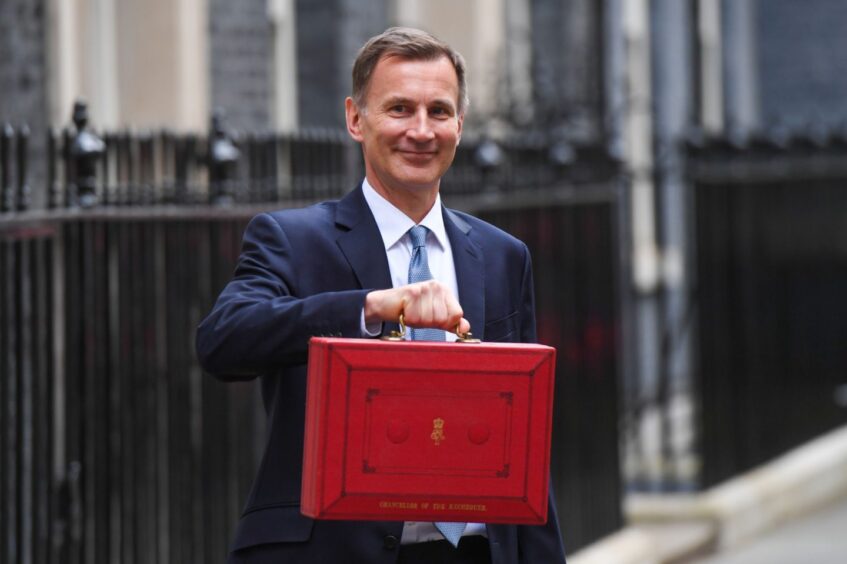
Jeremy Hunt has said the Scottish oil and gas industry is among the “losers” of his Spring Budget.
The Chancellor unveiled an extension to the windfall tax by a year to 2029 during his fiscal statement on Wednesday.
It marks the fourth change in the regime in two years, which trade body Offshore Energies UK (OEUK) said makes it “impossible” to plan investment.
Speaking on the BBC’s “Today” programme on Radio 4, Mr Hunt was asked who the losers of the budget are.
He said: “Who are the losers, I’m trying to answer your question directly, ok, people who… foreigners who are resident in the UK who are able to pay a cheque and avoid paying tax at the same rate as everyone else, the so-called Non-Doms.
“They are going to be paying significantly more tax.
“I’ve also asked the Scottish oil and gas industry to pay an additional contribution because the war in Ukraine is lasting longer, oil and gas prices are going to stay higher for longer, I think it’s fair they make an additional contribution to the cost of living.”
Mr Hunt said the tax will generate £1.5bn for Treasury coffers, but the measure has been derided by the industry and analysts.
After hitting a record high in early 2022, benchmark British gas prices are today back near pre-Russian invasion levels while oil prices are now at pre-invasion levels.
Analyst firm Wood Mackenzie said: “A tax that is now expected to have a seven-year lifespan under stable prices does not abide by most definitions of a ‘windfall’ tax.”
Earlier today, the CEO of Serica Energy Mitch Flegg said: “Current oil and gas prices do not represent windfall conditions for UK producers and increasing the tax burden on domestic oil and gas production again will be damaging for UK jobs and the economy.”
Industry figures have warned it puts jobs at risk, though the Conservatives’ measure stops short of plans proposed by Labour, which would also see te scrapping of investment allowances.
Read more below:
Recommended for you

